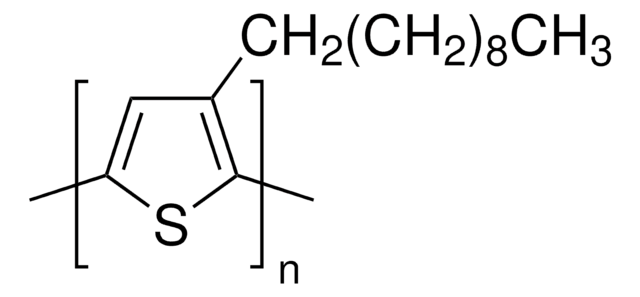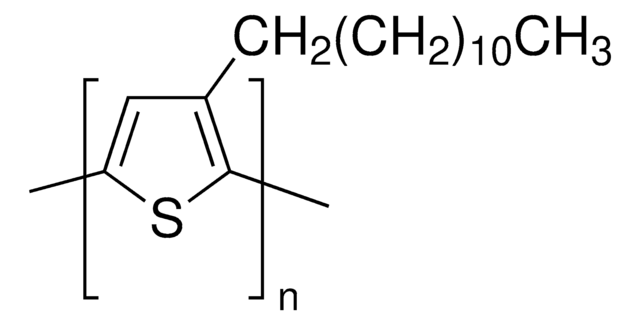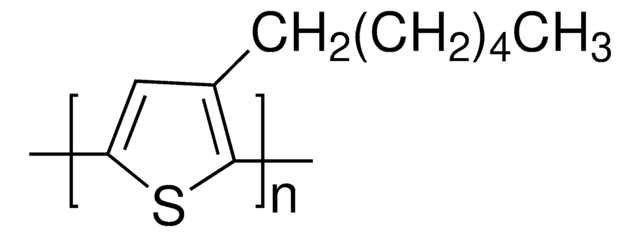495336
Poly(3-butylthiophene-2,5-diyl)
regioregular
Sinónimos:
P3BT, P3BT-RR
About This Item
Productos recomendados
mol wt
Mw 54,000 (typical)
color
black
solubility
chlorinated solvents: soluble (partially soluble in THF, diethylether)
fluorescence
λex 440 nm; λem 567 nm in chloroform
Mw/Mn
2.3 (typical)
InChI
1S/C10H16S/c1-4-5-6-10-7-8(2)11-9(10)3/h7H,4-6H2,1-3H3
InChI key
DUOSBQJOYVIVOR-UHFFFAOYSA-N
¿Está buscando productos similares? Visita Guía de comparación de productos
General description
Application
Packaging
Citation
Legal Information
Rieke is a registered trademark of Rieke Metals, Inc.
Storage Class
11 - Combustible Solids
wgk_germany
WGK 3
flash_point_f
Not applicable
flash_point_c
Not applicable
ppe
Eyeshields, Gloves, type N95 (US)
Elija entre una de las versiones más recientes:
¿Ya tiene este producto?
Encuentre la documentación para los productos que ha comprado recientemente en la Biblioteca de documentos.
Los clientes también vieron
Artículos
The application of conducting polymers at the interface with biology is an exciting new trend in organic electronics research.
Intrinsically stretchable active layers for organic field-effect transistors (OFET) are discussed. Polymer structural modification & post-polymerization modifications are 2 methods to achieve this.
Novel Graphene‑Based Nanostructures Production, Functionalization, and Engineering
Novel Graphene‑Based Nanostructures Production, Functionalization, and Engineering
Nuestro equipo de científicos tiene experiencia en todas las áreas de investigación: Ciencias de la vida, Ciencia de los materiales, Síntesis química, Cromatografía, Analítica y muchas otras.
Póngase en contacto con el Servicio técnico






![Poly[(m-phenylenevinylene)-co-(2,5-dioctoxy-p-phenylenevinylene)] light-emitting polymer, predominantly trans](/deepweb/assets/sigmaaldrich/product/structures/249/040/9442b889-4fa0-4b4a-b424-cff0769a5ef2/640/9442b889-4fa0-4b4a-b424-cff0769a5ef2.png)


